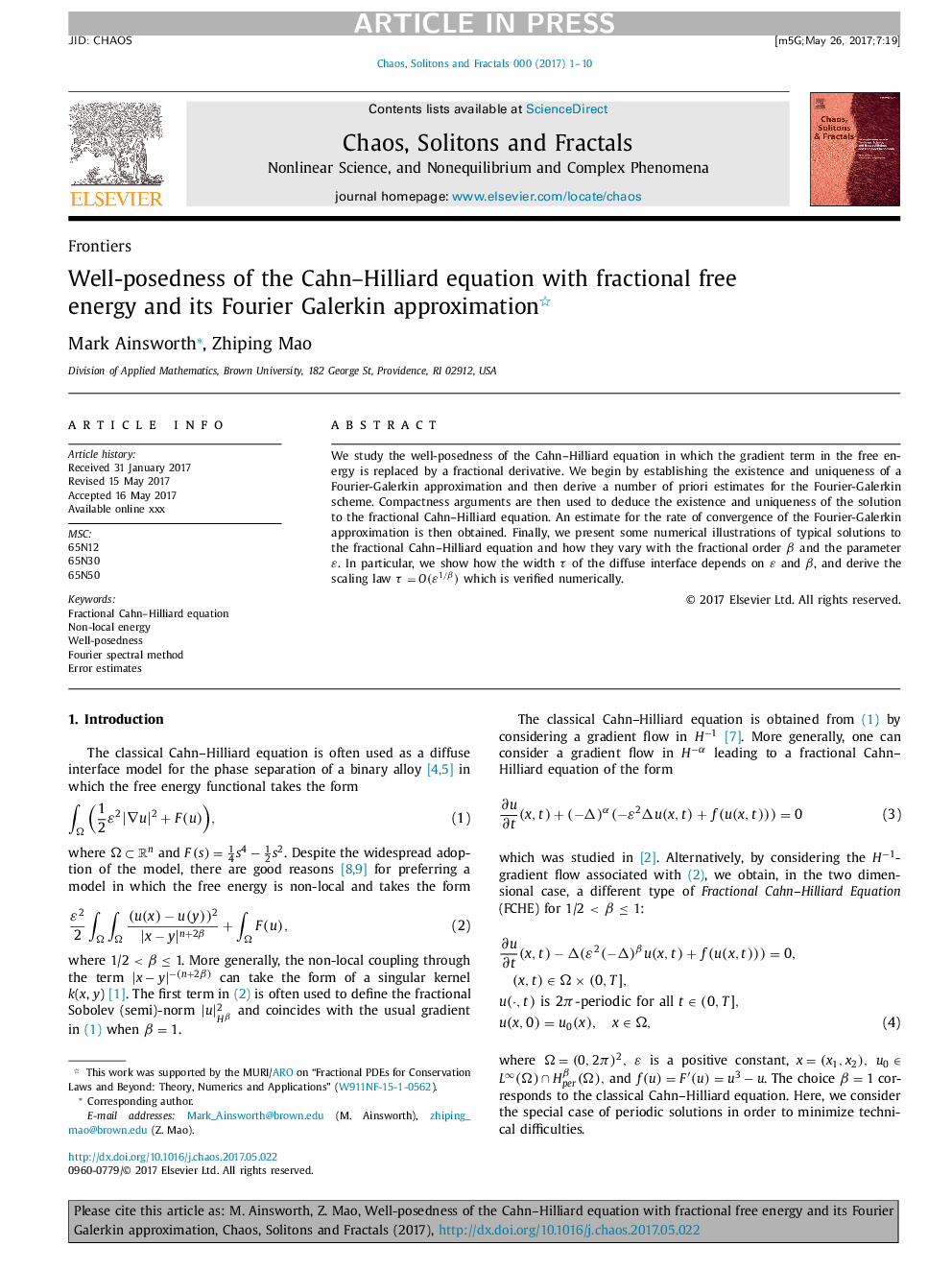| Article ID | Journal | Published Year | Pages | File Type |
|---|---|---|---|---|
| 5499716 | Chaos, Solitons & Fractals | 2017 | 10 Pages |
Abstract
We study the well-posedness of the Cahn-Hilliard equation in which the gradient term in the free energy is replaced by a fractional derivative. We begin by establishing the existence and uniqueness of a Fourier-Galerkin approximation and then derive a number of priori estimates for the Fourier-Galerkin scheme. Compactness arguments are then used to deduce the existence and uniqueness of the solution to the fractional Cahn-Hilliard equation. An estimate for the rate of convergence of the Fourier-Galerkin approximation is then obtained. Finally, we present some numerical illustrations of typical solutions to the fractional Cahn-Hilliard equation and how they vary with the fractional order β and the parameter ε. In particular, we show how the width Ï of the diffuse interface depends on ε and β, and derive the scaling law Ï=O(É1/β) which is verified numerically.
Related Topics
Physical Sciences and Engineering
Physics and Astronomy
Statistical and Nonlinear Physics
Authors
Mark Ainsworth, Zhiping Mao,
